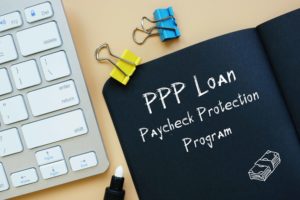 By Reginald Tucker It was the lifeline for countless small businesses and retailers during the height of the pandemic, but now it has come to an end. The U.S. Small Business Administration (SBA) has announced it has closed the popular Paycheck Protection Program (PPP), effective May 31.
By Reginald Tucker It was the lifeline for countless small businesses and retailers during the height of the pandemic, but now it has come to an end. The U.S. Small Business Administration (SBA) has announced it has closed the popular Paycheck Protection Program (PPP), effective May 31.
Since its inception last year, the PPP initiative provided more than $798 billion in economic relief to small businesses and nonprofits across the nation, keeping employees employed and helping businesses stay afloat during an unprecedented time in the nation’s history.
“The Paycheck Protection Program provided over 8.5 million small businesses and nonprofits the lifeline they needed to survive during a once-in-a-generation economic crisis,” said Casillas Guzman, SBA administrator. “I’ve heard story after story from small business owners across the country about how PPP funds helped them keep the lights on, pay their employees and gave them hope.”
The Paycheck Protection Program, among the first COVID-19 economic disaster relief programs to provide emergency funds to small businesses affected by the pandemic, has played a critical role in America’s recovery. But it wasn’t without its hiccups. It was not an easy program to navigate, and the rules regarding eligibility and loan forgiveness seemed to change constantly. Worse, millions of underserved businesses—particularly the country’s smallest businesses and those owned by women and people of color—were left out of early rounds of relief.
Since taking office, Guzman noted, the Biden-Harris Administration has pushed an effective and equitable implementation of this program with a focus on ensuring small businesses receive the backing they need to stay afloat and continue to employ millions of Americans. The program has supported the smallest of small businesses with 32% of the loans going to low-and-moderate income communities. Additionally, community financial institutions played a pivotal role in 2021 PPP lending to underserved communities during this period, providing 1.5 million loans totaling $30 billion. PPP loans in 2021 averaged $42,000, another indicator of targeted relief to the smallest small businesses.
“I’m proud of the work we did to begin to rectify these inequities—in 2021, 96% of PPP loans went to small businesses with fewer than 20 employees,” Guzman stated. “Moving forward, we will continue to prioritize equity in all SBA’s programs and services.”
For its part, the floor covering industry also took advantage of the opportunities the program provided. From small to mid-sized manufacturers who utilized the funding to keep their operations running, to flooring dealers that needed a cushion until business returned to normal, PPP funds served as a bridge of sorts. But as the nation begins to turn the corner on the pandemic, many saw the writing on the wall.
“I felt this had to be coming,” said Scott Humphrey, CEO, WFCA, alluding to the end of the PPP program. “In reality, those who realized their need were proactive and focused on the long-term stability of their companies were given ample time to apply for the PPP loans. The WFCA, and organizations industry wide, saturated the flooring media and social media with information about the PPP loan possibilities and how to apply.”
Those flooring retailers who were on solid footing prior to the start of the pandemic in the U.S. by and large managed to grow their businesses—save for a few tough financial quarters. But it’s safe to say that the event had—and continues to have—lasting ramifications. “The impact of COVID-19 was beyond our expectations, but the pains from the pandemic will not end because of immunizations and/or herd immunity,” Humphrey stated. “Though we pray the severe threat to our health that the virus created is behind us, the real challenges to many businesses have just begun. Money is no longer the greatest need; now, our focus has to turn to supply chain issues and best utilization of the money that was received.”
The PPP initiative is only one of eight disaster relief programs established by Congress to assist small businesses during the COVID-19 pandemic. Other programs include Economic Injury Disaster Loan (EIDL), EIDL Advance, Targeted EIDL Advance, Supplemental EIDL Advance, Restaurant Revitalization Fund, Shuttered Venue Operators Grant and SBA Debt Relief program.
(Look for more on this story in the June 7/14 edition of FCNews.)
